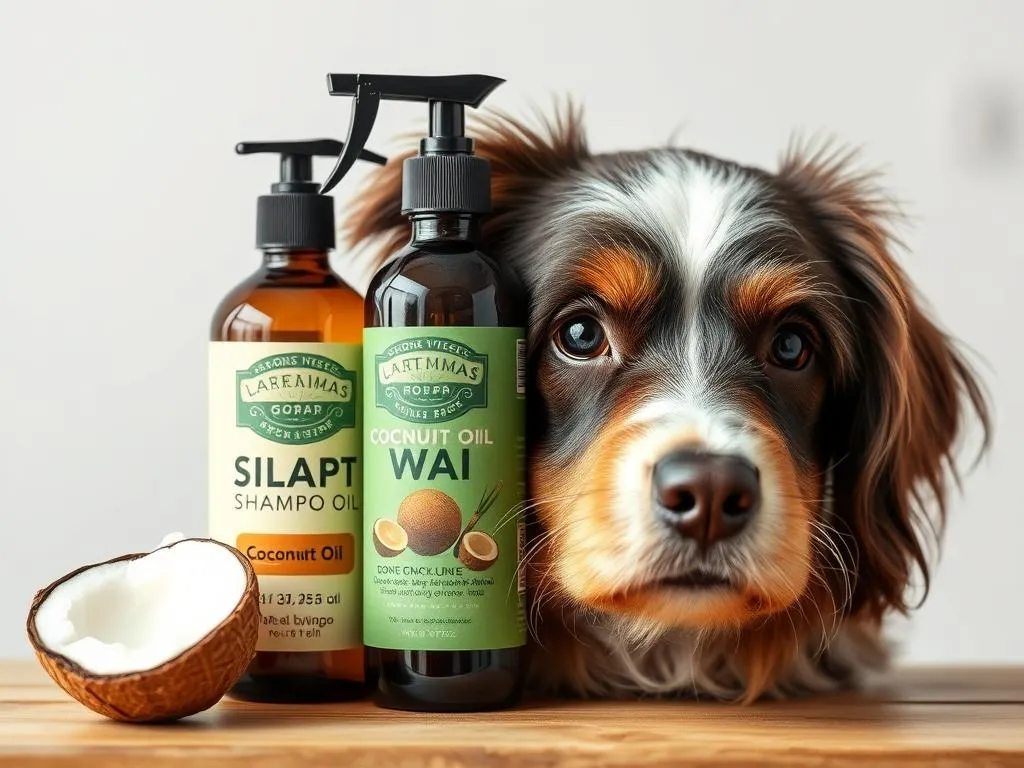
Introduction
Maintaining a dog’s health is a fundamental responsibility for pet owners. Regular health care not only ensures that your furry friend lives a long and happy life but also helps prevent common health issues, especially those related to skin and coat. Dogs can experience a variety of skin problems, including allergies, dryness, and infections, which can cause discomfort and irritability.
Grooming plays a critical role in your dog’s overall health. Regular brushing, bathing, and care can significantly enhance their well-being, allowing for early detection of any issues. Using natural products for grooming can further benefit your dog’s skin and coat, promoting a healthier and happier pet.
One popular ingredient that has gained traction in the pet care community is coconut oil. Known for its myriad health benefits for both humans and animals, coconut oil is particularly effective in dog grooming. This article will delve into the advantages of using DIY dog shampoos with coconut oil, offering recipes that are easy to make and safe for your canine companion.
Understanding Dog Skin and Coat Health
Common Skin Issues in Dogs
Dogs can face several skin problems that not only affect their appearance but also their comfort and health. Some common skin issues include:
- Allergies: Dogs can be allergic to various elements in their environment, including pollen, dust mites, and certain foods, leading to itching and inflammation.
- Dry Skin: Environmental factors such as cold weather and low humidity can cause a dog’s skin to become dry and flaky.
- Parasites: Fleas and ticks can irritate a dog’s skin, causing itching and discomfort.
- Infections: Bacterial and fungal infections can arise, particularly in moist areas of a dog’s body.
Signs of Skin Problems
Identifying skin issues early can save your dog from unnecessary discomfort. Look out for these signs:
- Itching and Scratching: Frequent scratching or biting at the skin can indicate an underlying problem.
- Redness or Inflammation: Changes in skin color or texture may suggest irritation or infection.
- Unpleasant Odor: A foul smell can be a sign of infection or skin disease.
- Hair Loss: Patches of missing fur can indicate allergies, infections, or parasites.
Importance of Regular Grooming
Regular grooming is essential for maintaining a healthy coat and skin. It helps in:
- Maintaining a Healthy Coat: Brushing removes dead hair and promotes healthy skin.
- Early Detection of Skin Issues: Regular checks during grooming can help catch problems before they escalate.
- Bonding Time with Your Pet: Grooming creates an opportunity for bonding and can enhance your relationship with your dog.
Benefits of Using Coconut Oil for Dogs
Nutritional Benefits
Coconut oil is not just beneficial for grooming; it also offers several nutritional advantages:
- Rich in Medium-Chain Fatty Acids (MCFAs): These fats are easily digestible and provide a quick source of energy.
- Antimicrobial Properties: Coconut oil can help combat bacteria, viruses, and fungi, promoting a healthier skin environment.
- Moisturizing and Soothing Effects: When applied to the skin, coconut oil provides hydration and relief from dryness.
Coconut Oil for Skin and Coat Health
Incorporating coconut oil into your dog’s grooming routine can have several positive effects:
- Hydration and Shine: Coconut oil can help moisturize your dog’s skin, leading to a shiny and healthy coat.
- Reducing Itching and Inflammation: Its soothing properties can alleviate itching and irritation, making it an excellent choice for dogs with sensitive skin.
- Natural Flea Deterrent: The oil can act as a natural repellent against fleas and ticks.
Safety and Considerations
While coconut oil is generally safe for dogs, there are important considerations to keep in mind:
- Proper Usage and Dosage: A small amount goes a long way—too much coconut oil can lead to gastrointestinal upset.
- Potential Allergic Reactions: Always test a small area first to ensure your dog doesn’t have an adverse reaction.
DIY Dog Shampoo Recipes with Coconut Oil
Creating your own dog shampoo using coconut oil is simple and rewarding. Here are some easy recipes you can try at home.
Basic Coconut Oil Dog Shampoo
Ingredients
- 1 cup coconut oil
- 1 cup liquid castile soap
- 2 cups water
Instructions
- In a large bowl, combine the coconut oil and liquid castile soap.
- Gradually add the water while stirring to create a smooth mixture.
- Store the shampoo in a clean, airtight container.
Recommended Use
- Use this shampoo once every 2-4 weeks, depending on your dog’s coat and activity level. Be sure to rinse thoroughly to remove all residues.
Coconut Oil and Oatmeal Shampoo
This recipe is particularly beneficial for dogs with sensitive skin.
Ingredients
- 1 cup coconut oil
- 1 cup ground oatmeal
- 2 cups water
- Optional: a few drops of essential oil (e.g., lavender)
Instructions
- Combine the coconut oil and ground oatmeal in a mixing bowl.
- Gradually add the water, mixing until you achieve a creamy texture.
- If desired, add a few drops of essential oil for fragrance.
- Store in an airtight container.
Benefits for Sensitive Skin
Oatmeal is renowned for its soothing properties, making it ideal for dogs with skin irritations. This shampoo not only cleanses but also calms inflamed skin.
Coconut Oil and Aloe Vera Shampoo
Aloe vera is known for its healing properties, making this shampoo a great choice for dogs with itchy or inflamed skin.
Ingredients
- 1 cup coconut oil
- 1 cup aloe vera gel
- 1 cup liquid castile soap
Instructions
- In a bowl, mix the coconut oil and aloe vera gel until well combined.
- Slowly add the liquid castile soap, stirring gently to avoid bubbles.
- Transfer the mixture to an airtight container for storage.
Soothing Properties of Aloe Vera
Aloe vera is excellent for treating skin irritations and promoting healing, making this shampoo especially beneficial for dogs with allergies or sensitive skin.
Additional Grooming Tips for Dog Health
Brushing Techniques
Proper brushing techniques can enhance your dog’s coat health:
- Choosing the Right Brush: Select a brush suitable for your dog’s coat type (e.g., slicker brushes for long-haired breeds).
- Frequency of Brushing: Regular brushing (at least once a week) helps remove loose hair and prevents matting.
Bathing Guidelines
Knowing when and how to bathe your dog is crucial:
- Signs Your Dog Needs a Bath: If your dog smells bad, has visible dirt, or their coat feels greasy, it’s time for a bath.
- Tips for a Stress-Free Bathing Experience: Use lukewarm water, speak soothingly to your dog, and have treats on hand for positive reinforcement.
Nail Clipping and Ear Cleaning
Regular maintenance is vital for your dog’s overall health:
- Importance of Regular Nail Trimming: Long nails can cause pain and difficulty walking, so aim to trim nails every 3-4 weeks.
- How to Clean Dog Ears Safely: Use a damp cotton ball to clean the outer ear and consult your vet for deep cleaning if necessary.
When to Consult a Veterinarian
It’s crucial to recognize when professional help is needed:
Recognizing Serious Skin Issues
If you notice signs such as severe itching, swelling, or unusual discharge, consult your veterinarian promptly.
Allergies and Dietary Considerations
Sometimes dietary issues can lead to skin problems. If you suspect this, discuss dietary changes with your vet.
Routine Veterinary Check-ups
Regular vet visits help monitor your dog’s overall health and catch potential issues early.
Conclusion
Incorporating DIY dog shampoos with coconut oil into your grooming routine can greatly enhance your dog’s skin and coat health. Regular grooming not only strengthens your bond with your pet but also allows for early detection of potential health issues. By experimenting with different shampoo recipes, you can find what works best for your furry friend, ensuring they stay clean, healthy, and happy.
Taking a holistic approach to dog grooming and health maintenance can make a significant difference in your pet’s quality of life. Remember, a little effort in dog care goes a long way in nurturing a loving and healthy companion.









